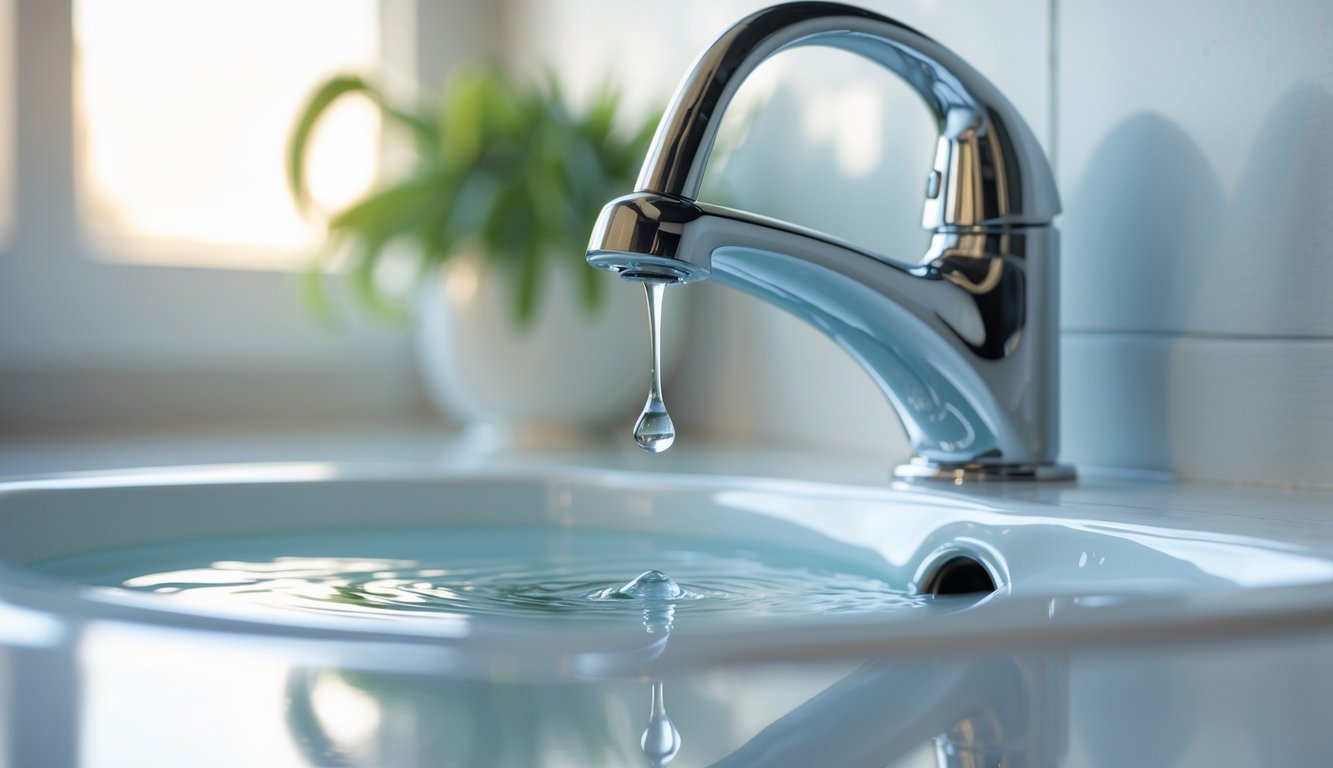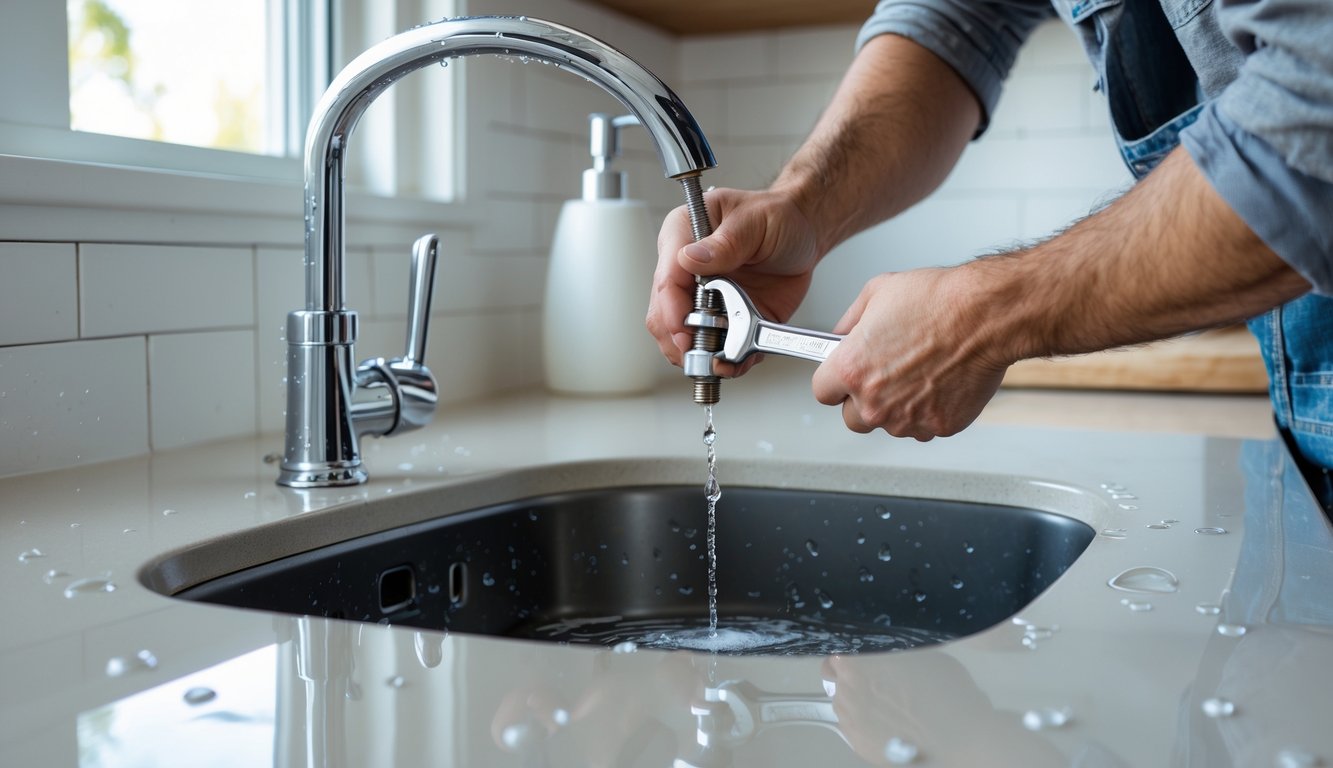
Property Damage Caused by Water Leaks
I’ve lost count of how many people ignore a drip until—surprise!—they’re shopping for new baseboards, drywall, and those “discontinued” tiles. A slow leak isn’t just a bucket under the sink. It’s stealthy, and the repair bill never shows up when you expect it. Oh, and the smell? Always appears right after you finally invite someone over.
Structural Damage and Water Damage
Picture this: I’m ankle-deep in mud in a client’s bathroom, crawlspace water everywhere, and it hits me—even a tiny leak can start mold in three days. Mold’s just the start. Floors buckle, subfloors warp, drywall crumbles. All because you thought, “I’ll call the plumber next weekend.”
One engineer I know loves to say, “A leaky faucet can dump more than 10,000 gallons a year.” That’s like, what, 270 laundry loads? (Numbers here, if you care). Insurance? They’ll tell you water damage is the second most common claim right after wind (see the data). Warped studs don’t fix themselves. Nobody checks under every sink twice a year—except maybe the guy who just paid for termite treatment, because, yeah, termites love wet wood.
Impact on the Plumbing System
People love to believe leaks are just “annoying.” That’s a lie. Put your ear on a copper line and hear that faint hiss? That’s corrosion, and it’s not waiting for you to notice. Drips eat away at threads, make tiny pits, and then—boom—pipe bursts while you’re on vacation.
High water pressure, old washers, nuts cranked too tight—they all add up. Ignore a leak, and now sediment’s gumming up your next expensive fixture. The one that fails next is never the one you expect. I sat through a claims seminar once—boring, but the main point stuck: most burst pipes start with a “boring” ignored leak, not a storm (see the proof).
Some plumbers swear by checking shutoff valves every six months. Most disasters? Just people not paying attention, not “acts of God.” Meanwhile, someone’s cursing at midnight, because a drip they ignored just trashed their wall. Been there.
Detecting and Preventing Faucet Leaks

Sweaty floors, drips louder at 2am—if you’ve ever tried to sleep through that, you know leaks aren’t just about wasted water. The bill always finds you. And it’s never the “good” kind of surprise. I’ve learned (the hard way) that catching leaks early isn’t a science fair project. Unless you count the weird ways pipes love to prank us.
Leak Detection Methods
People act like leak detection is some expert-level job. It’s not. My kitchen faucet started a silent drip last winter—only noticed because I wiped the base and found a streak. Sometimes the leak’s around the handle, not the spout. Compression faucets are famous for this. If the pipes under your sink feel stickier than a toddler’s lunchbox, yeah, something’s wrong.
I toss a tissue at the base—if it’s wet later, congratulations, you found a leak. Plumbers always talk up checking connections, but when’s the last time you looked at the aerator? I’ve unscrewed them and found mineral gunk (not a leak, but still gross). The sneakiest? Leaks inside cabinets or walls. No trick for that unless you get lucky—or your dog starts sniffing around the baseboard.
Weirdest hack: a stethoscope. It actually works to hear leaks hiding in the walls. Or just wrap a joint with toilet paper and check it the next day. Water’s sneaky. Sometimes nothing shows up, then 24 hours later—boom, soaked.
If you like step-by-steps, there are guides for that, but honestly, the “tissue test and hands-on checks” approach is how most of us do it (here’s one version). Find it before your neighbor does. Or before the smell does.
Monitoring Water Usage
Ever feel like you’re living next to Niagara Falls, but only your water bill knows? Mine jumped after a $3 washer failed. Monitoring isn’t just for the paranoid. Plumbers say your water meter is the only thing you can trust: turn off everything, check the meter, and if it moves, you’ve got a leak.
I swap bill screenshots with friends like we’re comparing high scores. Any weird spike? Something’s leaking. Not just the faucet—hidden leaks love to play hide and seek, but the meter always snitches. Habits like checking under sinks once a month, adding cheap shut-off valves, or just knowing how to read the meter will save you from panic-Googling “how to fix faucet” at 1am.
Honestly, those fancy auto-monitor systems? Only worth it if your pet raccoon keeps turning on taps. Otherwise, look at the meter, compare usage, and maybe you’ll avoid the ceiling stains I keep pretending I don’t see in my own basement.
DIY Tips to Fix Common Leaky Faucets

Didn’t even realize a single leaky faucet could waste almost 10 gallons a day (yeah, I checked—national water boards, plumbers, they all say it). Nothing like the shock of an extra $60-$100 on the water bill for what? Nighttime drip concerts? Usually it’s just a tired washer or seal hiding in there, mocking you until you finally get around to fixing it.
Identifying the Source of Faucet Leaks
Dripping from the spout, water sneaking out around the base, handles that feel loose for no reason—classic. My kitchen faucet? Leaked for months. I cranked it down so hard I thought I’d snap the handle, but nope, still dripped. Every faucet’s got its own weird personality—cartridge, ball, disc, or those old-school compression things (why do rentals always have those?). Compression types just chew through washers, while the others? O-rings or seals just give up and let water go wherever.
So, I grabbed a flashlight and started poking around. Sometimes you’ll spot those crusty white lines under the sink—mineral junk, right?—and realize you’ve had a leak for ages. WikiHow’s got some step-by-step stuff, which is actually helpful, but honestly, I just looked for tiny water beads around the handle. People ignore those, but they’re pretty much a dead giveaway. And stains, mold, weird corrosion? All bad news, but you know that already.
Trying to figure out if the leak’s coming from the spout, handle, or valve seat is just a recipe for losing your mind. One time I took apart the sprayer, convinced that was it. Nope. Turned out to be a warped O-ring I stared at for hours and never noticed. And then there are those leaks that magically stop when you finally get a plumber to look. Universe has jokes.